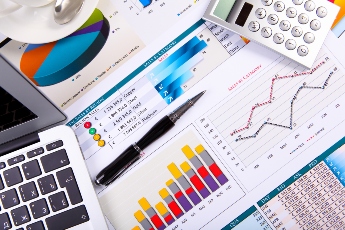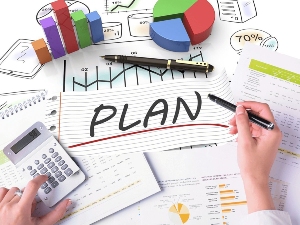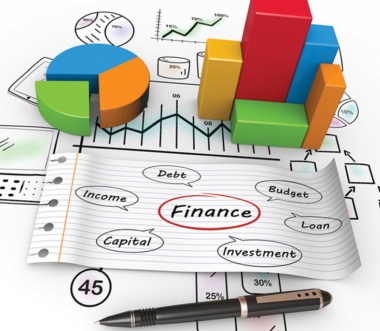How often do you say that about something you regret purchasing? Maybe it was those beautiful but painful pair of boots you wore once or that exercise equipment gathering dust in the corner. When enough of these impulse items accumulate over time, you’re left with a dwindling bank account and a pile of useless stuff.
You can reduce the number of instant gratification buys that chip away at your budget by establishing some spending guidelines. These mental filters may take some time to put into play, but patience and a little practice can turn your spending into the savings you need.
Can I afford this purchase?
It’s easy to love things priced beyond your means. You might hear it called “champagne taste on a beer budget.” But buying items that you can’t afford to pay back immediately or by your credit card due date is a fast track to debt.
If the product or service doesn’t fit your budget, see if there is a cheaper alternative that will accomplish the same thing. Switching out name brand items for generic is a great example.
What does the research show?
The value of a little online detective work can’t be stressed enough. Find out what people are saying about the product or service. Is it made well? Does it deliver on advertised promises? Other shoppers who have experienced the product first-hand are your best and most honest advocates.
More importantly, the online marketplace is the best way to comparison shop. Different sites can have a wide price range for the same product. Amazon, PriceGrabber, BizRate and Nextag are great starting points for stacking prices against one another. Look for any way you can save dollars on the purchase.
Do I need it or do I just want it?
There’s a difference between needing to buy a winter coat to stay warm and wanting to buy your fifth winter coat to have one for every weekday. Evaluate the role your purchase will play in your daily life. Determine whether it will have function (that’s your one winter coat) or if it’s more about gratification and appearances (your five winter coats).
It’s not wrong to want stuff. It’s just that if you buy all those things you want, it can leave little in your bank account for necessities. If you follow your head instead of your heart, you’ll avoid letting your emotions get the best of your wallet.
Will I still value this purchase a week, month or year from now?
This is a good question to ask in determining how happy the product will make you. The longer you’re able to use it, the less likely it is that you’ll need to buy similar products.
If you hold off on a purchase, see if you’re thinking about it a day or week later. This can help measure whether it was ever important to you in the first place. More often than not, the impulse fades.
How else could I use the money for this purchase?
If you’re trying to save up for a car or a down payment on a home, every dollar matters. Prioritize where you put your monthly earnings. For example, pay off your bills first. Then add to the down payment piggy bank before you add to the happy hour fund. If you end up having leftover spending cash, you’ll rest easy knowing that already took care of your bigger money priorities.
Spending isn’t bad; in fact, it’s the pulse of our economy. According to Bloomberg Businessweek, household purchases make up 70 percent of our economy. But if you can give some extra thought to every purchase you make by understanding exactly how you’ll pay for it, you’re more likely to find lasting value in the products and services you use.…
 If you need an emergency financial plan, here’s how to build one:
If you need an emergency financial plan, here’s how to build one: When many people want loans, bad credit holds them back. However, even if you have huge medical bills, missed bill payments, and student loans that are sinking your credit, you can still qualify for good rates on personal loans. If your credit is not perfect right now, you’ll want to tackle some credit repair before you apply for loans. This is because when you apply for personal loan, bad credit can mean a more complex application process, higher interest rates, and even additional fees. To lenders, a bad credit simply means that you are bigger risk and therefore lenders charge you more for a loan, to protect themselves from non-payment. Some lenders
When many people want loans, bad credit holds them back. However, even if you have huge medical bills, missed bill payments, and student loans that are sinking your credit, you can still qualify for good rates on personal loans. If your credit is not perfect right now, you’ll want to tackle some credit repair before you apply for loans. This is because when you apply for personal loan, bad credit can mean a more complex application process, higher interest rates, and even additional fees. To lenders, a bad credit simply means that you are bigger risk and therefore lenders charge you more for a loan, to protect themselves from non-payment. Some lenders  Most buildings have a fire exit plan. If you suddenly heard a fire alarm, you would likely know what to do. Yet, even though financial crises can be just as sudden as a fire – and are far more common – few people have a financial emergency plan. If you suddenly found out that you were suddenly out of work or needed to take on a huge debt, would you know what to do? Having a financial emergency plan lets you stay calm and start focusing on solutions right away.
Most buildings have a fire exit plan. If you suddenly heard a fire alarm, you would likely know what to do. Yet, even though financial crises can be just as sudden as a fire – and are far more common – few people have a financial emergency plan. If you suddenly found out that you were suddenly out of work or needed to take on a huge debt, would you know what to do? Having a financial emergency plan lets you stay calm and start focusing on solutions right away.